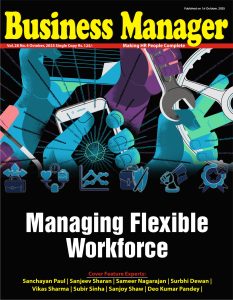A new survey by staffing and HR services provider Genius HRTech (formerly Genius Consultants) reveals a persistent wage gap between gig/freelance workers and their permanent employee counterparts — even when performing identical roles.
Key Findings
- Nearly 47% of the 1,550 professionals surveyed between 1–30 September 2025 believe gig workers are paid less than permanent employees for the same work.
- When asked how much less:
- 11% said gig workers earn up to 10% less.
- 23% said gig workers earn 10-25% less.
- 13% said the gap exceeds 25%.
- A striking 73% believe that seasonal or “festive” gig workers should be paid the same hourly rate as permanent employees for identical work.
- Employers’ reasons for paying less to gig/freelance workers include:
- 56% saying it’s because gig workers don’t get long-term benefits or obligations.
- 24% citing the short-term nature of the work.
- 10% attributing differences to lower skill or training levels.
- Only 3% of employers say there is no difference in pay between gig and permanent workers.
- On non-monetary benefits: Among gig workers, 43% want skill training for future roles; 31% want flexible shifts; 13% want transport/meal facilities; 9% want better conversion to permanent employment.
Also read – Dr. Reddy’s Laboratories appoints Sanjay Sharma as its new CHRO
The survey comes at a time of heightened fixture hiring (e.g., festive seasons) in India, yet the wage-parity issue persists. It underscores that while gig work is increasingly essential to the economy, many gig workers continue to operate on unequal terms.
The question of “equal pay for equal work” becomes more acute when gig workers perform the same tasks but with fewer protections, lower pay, and lesser benefits.
From the employer side, flexibility and lack of ongoing obligation are cited as justifications — raising broader questions about fairness, labour rights, and the long-term sustainability of the gig workforce.
The data suggests for gig workers that they may be doing the same job as permanent colleagues but earning less — knowing this gives you stronger grounds to ask about pay fairness and benefits and there’s increasing awareness (73% of respondents) that pay parity is expected, so companies risk reputational or morale issues if disparities go unchecked.
The findings may help inform interventions in labour law, contract classification, and benefits frameworks to ensure gig workers are not disadvantaged.As the gig segment grows, unresolved pay gaps could lead to workforce dissatisfaction, turnover, and inequitable working conditions.
While the gig economy offers flexibility and meeting of demand surges (especially during festive seasons), this latest report from Genius HRTech signals that there’s still a gap between flexibility and fairness. Nearly half the workforce sees the wage divide, and a large majority believe gig workers deserve equal hourly compensation when doing the same work. The challenge now is translating this sentiment into practice—through transparent pay practices, skill development pathways, and employment models that don’t leave gig workers behind.










